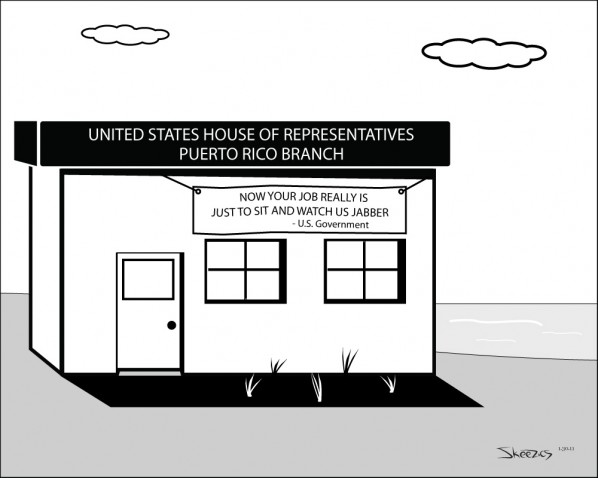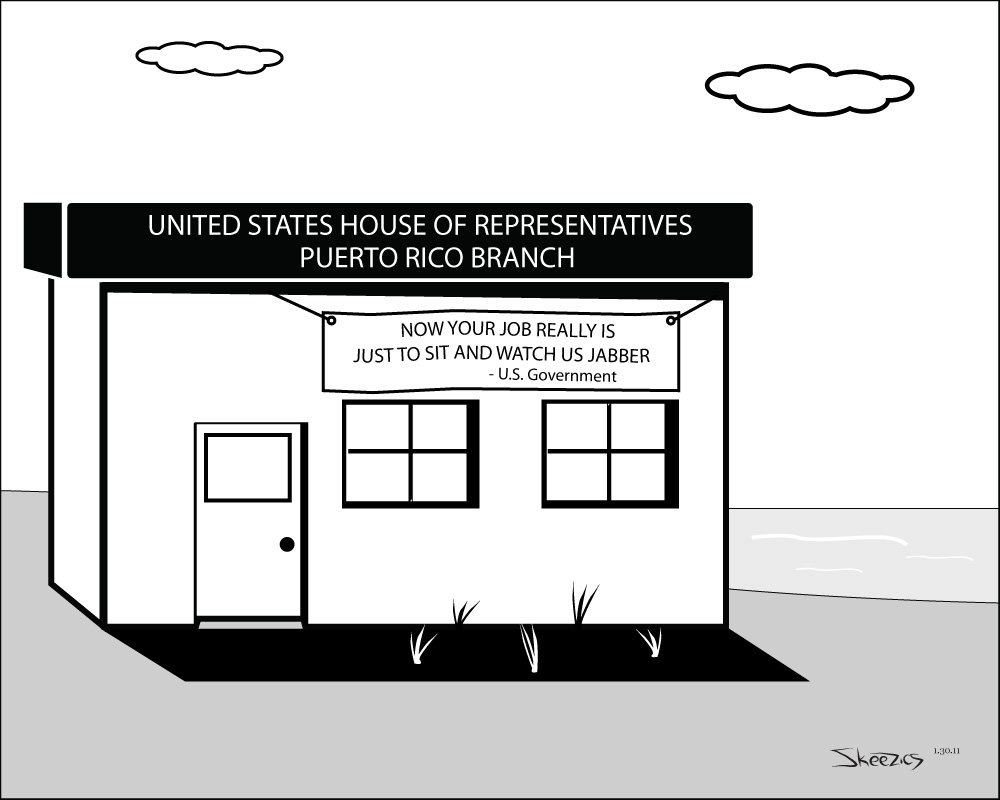While you were at home for Christmas break eating delicious home cooked meals and reveling in your triumph over the fall semester, Republican members of Congress were busy – among other things – taking Congressional voting privileges away from the Congressmen and women representing the five US territories and the District of Columbia.

Puerto Rico, Guam, the Virgin Islands, the Commonwealth of the Northern Mariana Islands, Washington, DC, and American Samoa each send one delegate to the House of Representatives. The voting rights of these representatives have been rather inconsistent throughout the years, but for the past four years, while Democrats held power in the House, the representatives from the territories had limited voting privileges on the Committee of the Whole. This meant that, when the whole House convened, the representatives of the territories were able to vote on procedures and amendments to bills. They were not allowed to vote on the final version of a bill.
According to a statement from Republican leadership, the reasoning behind denying voting privileges to the territories was that the previous voting rights they had enjoyed were unconstitutional. A spokesperson for the leadership said “only members of the House are eligible to vote in the House.” Going on to say that the Committee of the Whole was essentially the same as the whole House, and therefore the votes of these quasi-representatives were unconstitutional. It seems fair to point out that these voting rights were hardly the same as full voting rights. Many refer to the voting privileges previously held by the territories as almost purely symbolic, and in no way substantive.
The displaced representatives, as a whole, responded with anger and frustration. Pedro Pierluisi of Peurto Rico said in a statement that “the Republican package sends a clear message to our constituents: “You don’t deserve to be heard. You don’t count. And you don’t matter.” Eleanor Holmes Norton, the representative from Washington, DC, issued a statement saying that it would be “very painful” to have to inform her constituents that the closest thing they have ever had to representation in Congress has been taken away, and that she was working to get her voting rights restored.
Holmes Norton seems to be taking the blow harder than her colleagues in the territorial representation business, perhaps because her district has the least control over its own destiny. Each of the other territories has its own distinct form of government, usually consisting of a governor and legislature with one or two houses. For the most part, the territories are able to self-govern while relying on the United States for military and financial support. Washington, DC has a mayor and city council, but the decisions of either can be overridden by a vote of Congress.
DC residents are also famously testy about the fact that they pay taxes without congressional representation. In a metaphorical middle-finger to Congress, license plates in the district read “Taxation Without Representation” and there is a large billboard situated near Capitol Hill which counts up all the tax dollars that have been paid by DC residents to a legislature in which they have no vote. Eleanor Holmes Norton has made DC Statehood her major goal in Congress, though she has had almost no success in moving closer to that goal. This decision of the House only makes that goal seem farther away.
Despite the strong reactions of the representatives in question, almost no media or political attention has been paid to this change of rules. The Washington, DC papers covered the rule change, but many national media outlets had nothing more than a blurb in an opinion column marking this latest loss of power for the United States’ most powerless legislators. A few issue specific blogs and news outlets in the territories themselves covered the news, but gave it little time or attention. Even residents of the territories were hardly bothered.
CAS Sophomore and Virgin Islands resident David Dawiskiba (CAS’13) said that his representative was “already so limited in terms of making a difference” that the change in rules was unlikely to affect anything in the House or the Virgin Islands. He went on to say “the goal [of representation] is having a voice” more than making a substantive impact on legislative decisions. Indeed, while most residents of DC are deeply involved in our nation’s political process, Dawiskiba said that the people of the Virgin Islands (and, one can imagine, the other territories) were much more concerned with internal affairs than goings on in Washington, and are happy with their territory status as far as it goes. “We can’t survive on our own,” he said, referring to the United States’ financial backing of the territory.
Despite the fact that the Virgin Islands, Puerto Rico, Guam, and the Northern Mariana Islands and American Samoa are likely to be unaffected and unperturbed by the House’s procedural change – hardly surprising, given the fact that three of the territories are in a different hemisphere of the globe – to Washington DC’s residents this is just one more blow to the pipe dream of statehood.


2 Comments on “Congress to Territories: No Votes For You!”